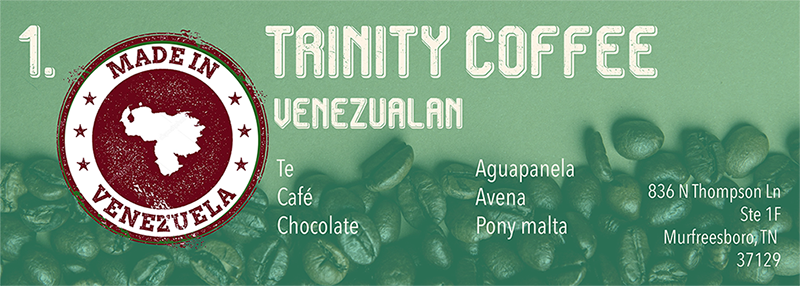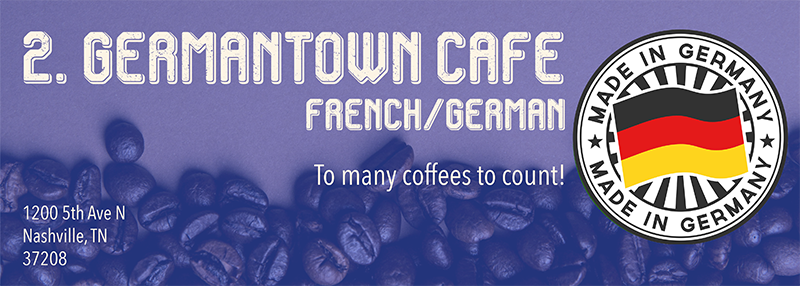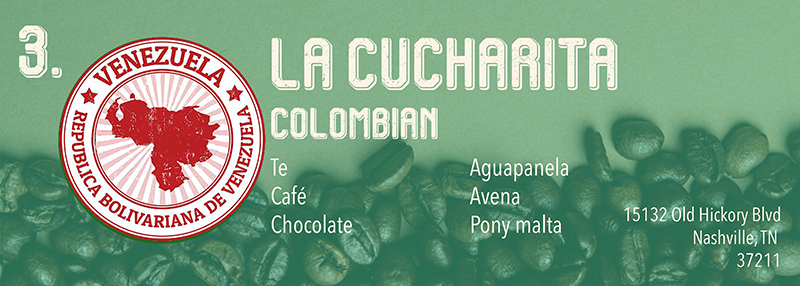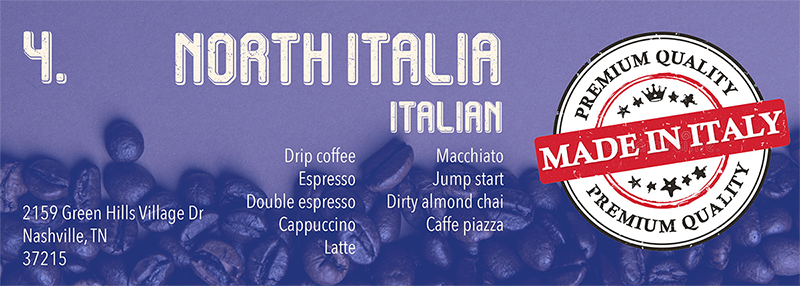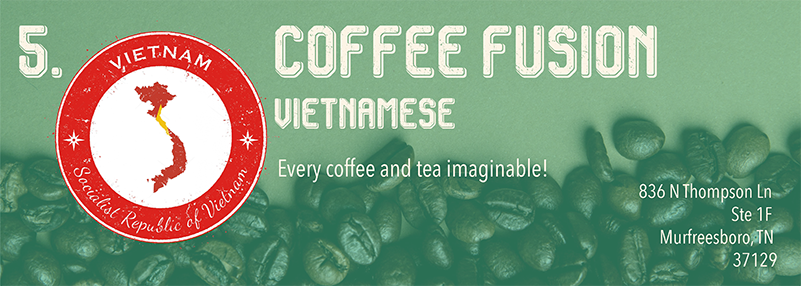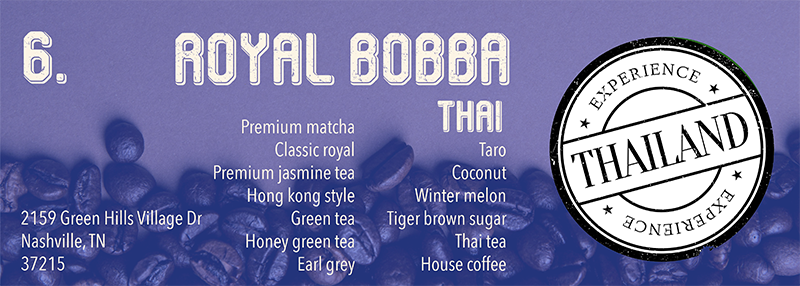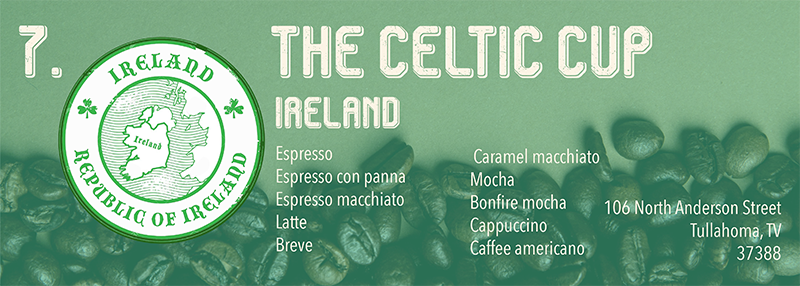
Somali coffee shop opens doors for ethnic restaurants
Every Tennessee resident, not matter how long they’ve been here, knows that Nashville is a hotbed for budding businesses. With chic boutiques, hipster coffee shops and charming country vibes, it’s impossible to be in the state long without getting sucked into the bustling summer vibes that Nashville somehow exudes year-round. But beneath all of these artsy businesses resides a driving force that is hardly ever mentioned, yet is heavily relied on and is growing stronger daily: immigrant entrepreneurs.
The Nashville Metro Area boasts over 150,000 immigrant residents, with the majority of these immigrants coming from South American countries, the Congo, Iraq, Syria and Somalia, according to the New American Economy and TNRefugees. Almost 10,000 of these immigrants are entrepreneurs, and 16.2 percent fuel all of Nashville’s food and restaurant industry. So it’s no surprise that when you stroll through Nashville, you feel like you’ve strolled through a dozen country’s worth of culinary bests.
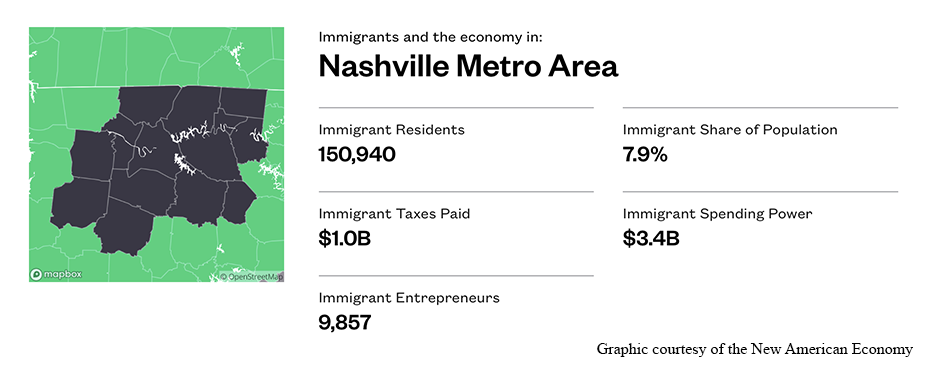
One such restaurant, tucked on the edges of Murfreesboro Pike, is The Horn Coffee Shop. Started by Ahmed Sayid, a Somali immigrant entrepreneur, shortly after he immigrated to America in 1996, the coffee shop stands as a marker to the strong Somali population that has slowly integrated itself into the framework of Nashville’s ethnic food scene.
“We see a lot of people who have never tried Somali food,” Sayid said, as he rolled pastry dough across the flour-strewn counter. “A lot of people are very surprised. It’s nice to be able to show them our culture.”
The food offered at The Horn is unique to the Somali community—items like sambosas, which are fried or baked pastries with savory meat, potatoes, onions, and sometimes coconut; mandazi, also known as Kenyan sweet bread; and malawah, Somali sweet pancakes dusted in sugar, are just a few of the fresh-baked Somali foods offered to customers. And if somehow these items don’t immediately tempt you upon entering the shop, rows and rows of carefully crafted pastries and pre-wrapped items line the counter in a veritable parade of Somali culture. (Additionally, if it’s your first visit to The Horn, Sayid always promises free samples for you to fall in love with.)
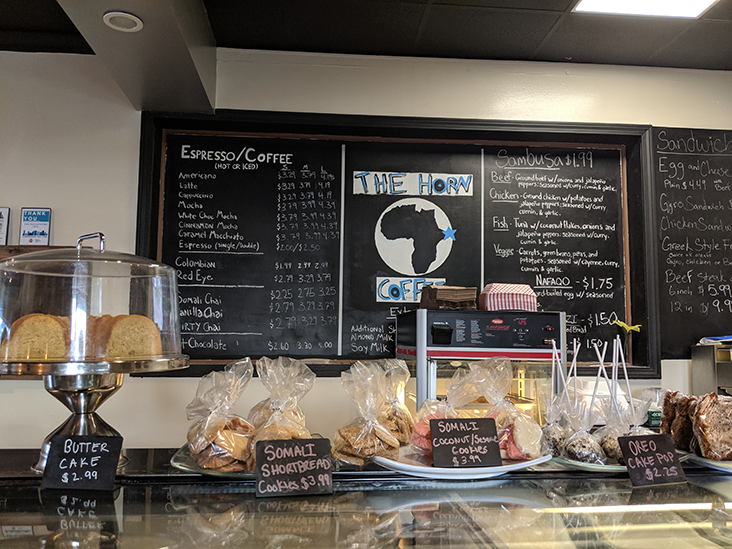
The real crowning jewel of this establishment, though, is the drink menu: famous for their Somali chai, The Horn creates a wide variety of authentic chai teas that are a far cry from the generic, American-ized versions found at most chain coffee shops. According to Sayid—who takes great pride in showing the hands-on process he performs mixing the drink—the teas are created with leaves from Kenya and a specific blend of cardamom, ginger and cloves that comes from a long tradition of authentic Somali chai art.
Holding on to his cultural roots is very important for Sayid, and in consequence, The Horn. The coffee shop was created to honor his father, who inspired him to rise above the temporary housing he was placed in when he immigrated.
“It was a hard process,” said fellow immigrant and friend Abdi Mohamed, referring to the immigration process he also went through. “People do not know how long it takes to get here. Get to America, to success.”
Both Muhammed and Sayid experienced the long, hard road to U.S. citizenship, and have found their calling serving others in the Nashville community—for Sayid, through The Horn, and for Mohamed, through serving as a translator and top supervisor of employment services for Catholic Charities, a refugee and immigration charity.
The importance of the shelter that ethnic enclaves bring, and the representation of Nashville’s booming industry, cannot be understated—especially as the number of immigrants to Nashville rises annually.
“(The Horn) is a great place for us Somalis to gather,” Mohamed said, smiling at the after-school groups of Somali teens that were bustling in to shop.
Thanks to the popularity of places such as The Horn, the diversity of Nashville will continue to thrive in an open and appreciative environment.
“Everyone shares the same values,” Sayid said, in an interview with New American Economy. “Whether you’re black, white, orange—whatever it may be, it may be different religions—it’s the same.”
Since the Somali community is only one of the many immigrant communities in the middle Tennessee area, there is a plethora of ethnic coffee shops, cafes, and restaurants to become addicted too. If you’re looking for other ethnic coffee shops to enjoy, look no further than this coffee map:
